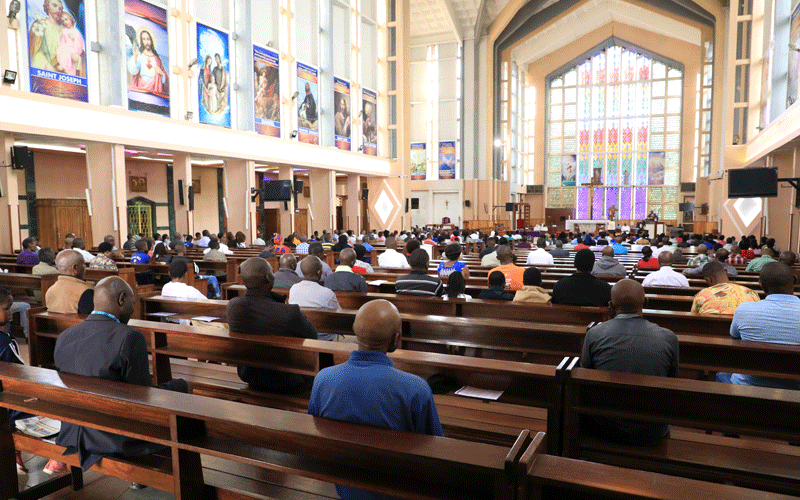New normal beckons for worshippers
By Bernard Gitau, July 8, 2020Churches, mosques and temples will be forced to abandon some of their traditional rites to conform with the protocols drafted by a special team to facilitate the phased re-opening of places of worship.
While all denominations proposed their respective regulations to convince the government to re-open places of worship, the Inter-Faith Council has come up with harmonised regulations that will apply to all places of worship once they re-open.
Other than observing the already set protocols to avoid contact among congregations, the manner in which the services will be conducted will change dramatically with some rites varied or altogether discarded to conform with health guidelines.
In the mainstream churches for instance, all venues for the sacrament of baptismal and fronts will be emptied and will remain so while all the missals, hymnals, prayer cards and other paper resources normally used during services will also be removed.
“The anointing associated with confirmation may not take place via the use of a cotton ball or other instrument.
The anointing must be performed by the celebrant directly with his hand,” reads part of the guidelines by Kisumu Catholic Archbishop Rev Phillip Anyolo who is also the chairman of Kenya Conference of Catholic Bishops.
Guidelines
On Monday, the Council presented to president Uhuru Kenyatta the guidelines for the phased re-opening of public worship, together with an interim report by the committee chaired by Nyeri Catholic Archbishop Anthony Muheria.
“The re-opening of places of worship will follow for phases, which will depend on the situation of the infection trend and spread, that is generally indicated by the daily positive cases and the level of compliance in our congregational gathering.
We advise that all the congregations should prepare themselves adequately for this phase,” Muheria told reporters while announcing the new measures yesterday.
Muheria who chaired the Inter-Faith Council which sought views from all denominations as well as mosques and temples to ensure consensus urged fellow religious leaders to ensure they protect their congregations by respecting the protocols imposed by the government.
“We are humbly inviting all religious leaders to take this moment to save our citizens, and that together, we safely manage the return of your places of worship. Please let us not rush without preparations.
We all understand the great eagerness and longing we have, but with some patience and preparations we can safely reunite, soonest possible in our places of worship,” he added.
The guidelines developed by the Muheria-led Council include regular cleaning and disinfection of the places of worship, avoiding unnecessary contact during services, utmost care in sanitizing and sharing of items and special sanitizing for all those presiding in the public worship.
Number of services
Muheria clarified that there were no restrictions on the number of services that can be held in a day, so long as the number of congregants remains 100 regardless of the size of the prayer hall.
He also clarified that church ministers, bishops and other religious leaders above the age of 58 years would be exempted from the age limit but said there must be caution on those with preexisting health conditions.
Where possible, thermal guns are to be used to detect those who could be suffering from any illnesses, including Covid-19.
The Council also counseled caution when collecting tithes and offerings to avoid contact which could expose worshippers to the disease.
“We are calling for personal and community responsibility. Let us embrace creativity and innovation in our services,” he said.
On planned sensitisation, the Council in collaboration with other religious leaders will visit counties to share the feedback of the guidelines in order to accommodate new ideas.
The council is also calling for the formation of Inter-faith Committees at the Sub County, and County levels to help oversee the compliance with the guidelines in all places of worship.
